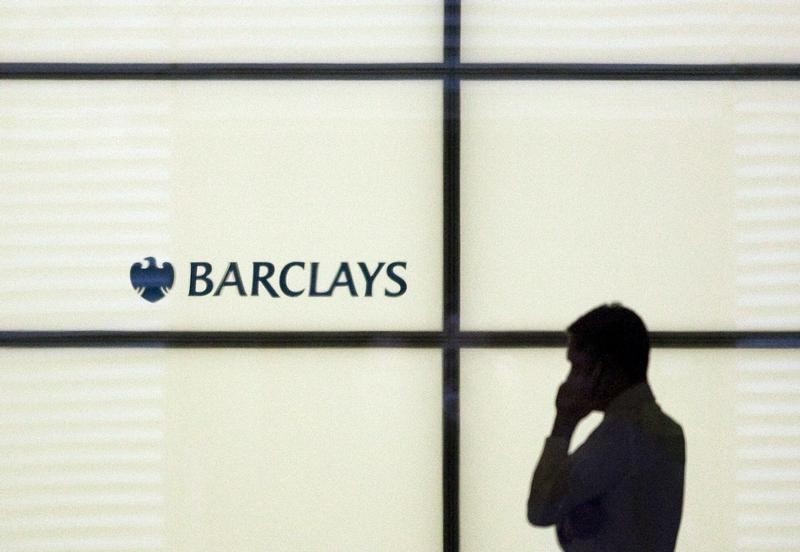By Geoffrey Smith
Investing.com -- Harry Flashman, the fictional Victorian hero created by George MacDonald Fraser, used to say that once your vitals are trapped in the wringer, all you can do is holler with a good grace until you come out the other side.
That’s pretty much what U.K. banking stocks are doing this week, as the sector tries to wake up from an eight-year nightmare – also known as compensation for mis-selling payment protection insurance.
Barclays (LON:BARC) rose 4.2% Tuesday after it said it would take what it expects to be a final hit of between 1.2 and 1.6 billion pounds for the PPI scandal. That comes a day after Lloyds Banking Group (LON:LLOY) had said it would need to increase provisions by between 1.2 and 1.8 billion pounds. Royal Bank of Scotland (LON:RBS) had said last week it expected a more modest final reckoning of between 600 and 900 million pounds. Lloyds was up 2.0% Tuesday while RBS was up 1.6%.
That’s considerably ahead of the U.K. FTSE 100, which was down 0.3%, and the Stoxx 600, which was down 0.5% on overdue profit-taking after some harsher rhetoric from Chinese media on the subject of trade and of White House economic advisor Peter Navarro in particular.
The Financial Conduct Authority, the banks’ lead regulator, had set a deadline of Aug. 29 for compensation claims, triggering a last-minute surge in activity enthusiastically stoked by professional advisory firms. The fact that all the major banks are raising their provisioning now that the application forms are in suggests that people were all too happy to jump on the compensation train before it left the station. Common sense, however, suggests that anyone who sustained real financial damage filed their complaint long ago. It would not be surprising to see that the final batch of claims turn out to be of much lower quality – and thus generating proportionately smaller payouts – than in previous years.
Whatever the final outcome, British banks now look to be free of a factor that has hammered their stocks repeatedly for the best part of a decade. If the U.K. can avoid a disorderly Brexit that would inevitably hit the quality of domestic loan portfolios, then another major risk will have been negotiated, U.K. interest rates will stand a better chance of staying positive, and the outlook for bank profits will look considerably rosier. Nor will U.K. pay growth, which hit an annual rate of 4% for the first time since 2008 in August, do the banks’ balance sheets any harm.
Meanwhile, the wringer may be preparing to process its next victims. The European Court of Justice signaled earlier Thursday that it is likely to rule that the Spanish banking sector’s practice of selling mortgages tied to a local price index was “abusive”. That paves the way for millions of Spaniards to claim compensation from their lenders. The worst affected, Caixabank (MC:CABK) and Bankia (MC:BKIA), both fell by 2.9%, while Sabadell (MC:SABE) fell 2.0%. The country’s two biggest banks, Santander (MC:SAN) and BBVA (MC:BBVA), fell by 0.3%, reflecting the fact that their balance sheets are bigger and more diversified away from their home market. Spain’s IBEX 35 was down 0.4%.
